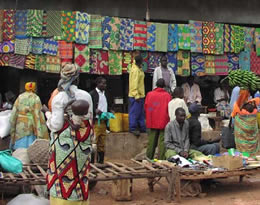In a Global Recession, Capitalism May Be the Big Winner

When Fed Chairman Ben Bernanke recently claimed that the recession in America was “very likely over,” it was a relief for many. Sure, the United States may be the global trendsetter in all things financial, but the global economic crisis has led some countries to initiate their own financial reforms. It all makes for a historic year in which the recession may have inadvertently inspired global reforms and innovation.
All these reforms have been documented in Doing Business 2010, the seventh annual report from the World Bank Group investigating the steps taken by countries around the world to help and hinder business activity. But this year’s report proved historic, as Doing Business found that since June, 2008 131 countries introduced 287 pro-business reforms, by far the highest number since the report was first introduced in 2004. Perhaps most fascinating, the bulk of these pro-business resolutions were adopted by lower and lower-middle economies.
Most striking in the investigation’s list of top reformers was Rwanda’s place at the top. It’s an impressive feat for a country that less than two decades ago was mired in a bloody civil conflict that left it with a tattered national economy. Rwanda’s place at the top of the list was inspired primarily by the introduction of new laws making it easier to start a business and strengthening the position of minority shareholders. By allowing entrepreneurs the means to start a business in three days, register property more easily, and providing greater access to credit, Rwanda leapt from 143rd on the study’s ease of doing business rankings to 67th in just one year.
The rest of the Doing Business top reformers list doesn’t focus on any particular region. It does however show some impressive progress from countries that have long had trouble gaining any real traction in their respective economies. The list includes countries like the Kyrgyz Republic, Macedonia, Colombia, and even Liberia, another African nation once stuck in its own bloody civil conflict that has seen economic growth and some impressive innovation in recent years. Showing the strides made in parts of Africa, Rwanda was named the top reformer in the areas of employing workers, getting credits, and protecting investors, while Botswana was named the top reformer in enforcing contracts and Malawi the top reformer in closing businesses.
The overall Doing Business list is still dominated by players like Singapore, New Zealand, the United States, and China, but the reforms outlined in the third world indicate that, when it comes to the economy, some poor countries could be balancing the playing field.





